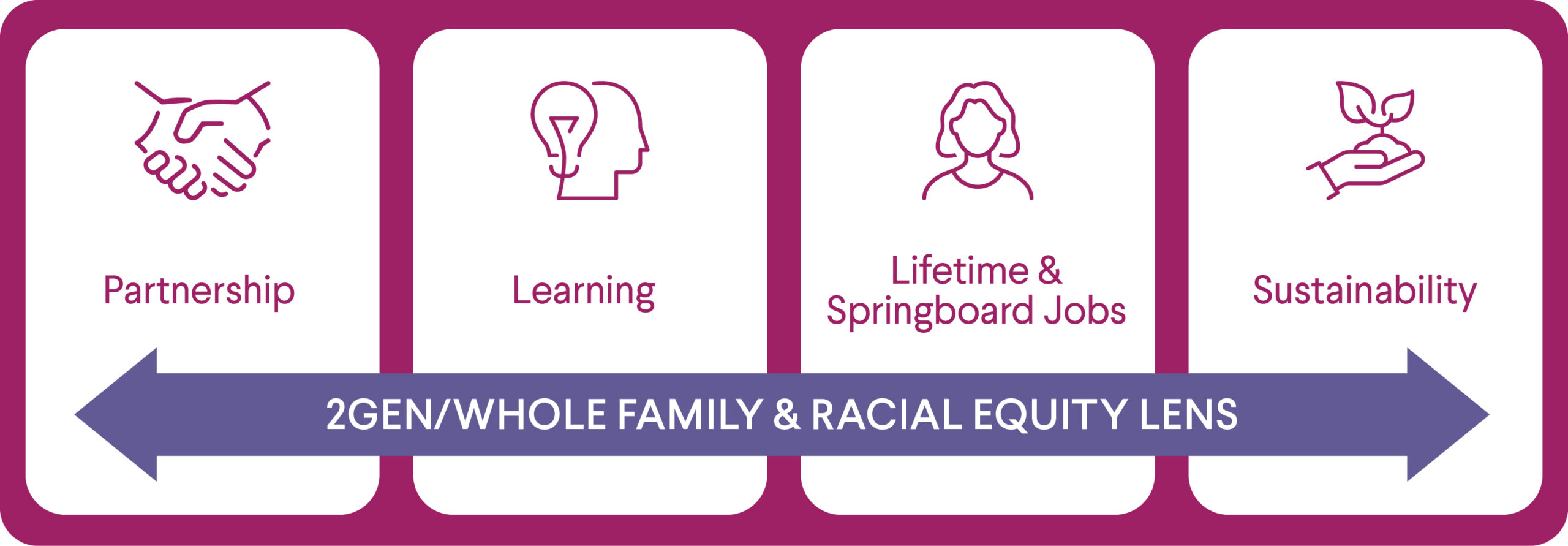BOOST Core Tenets to Social and Economic Advancement

Launched by The Kresge Foundation in 2019, the BOOST initiative connects families with low incomes to critical human services supports and educational and career pathways to advance multigenerational family economic success. In six cities — Baltimore, Maryland; Green Bay, Wisconsin; Hartford, Connecticut; New York City (Queens); Portland, Oregon; and Syracuse, New York— community colleges and human services nonprofits have partnered to support the economic advancement of families as part of the BOOST initiative. The partners at these BOOST sites are guided by six core tenets that advance family social and economic success: partnership, learning, lifetime and springboard jobs, sustainability, racial equity, and the two-generation (2Gen) approach, also sometimes referred to as the whole-family approach, as defined by Ascend at the Aspen Institute.
BOOST partnerships place a particular emphasis on racial equity—both the process and outcome of seeking to understand and address the programmatic, institutional, and policy barriers families of color face in higher education and human services systems. Over time, BOOST partners have deepened their understanding of systemic racism and how it influences individual and organizational thinking and are now shifting their organizational practices to support more equitable outcomes.



